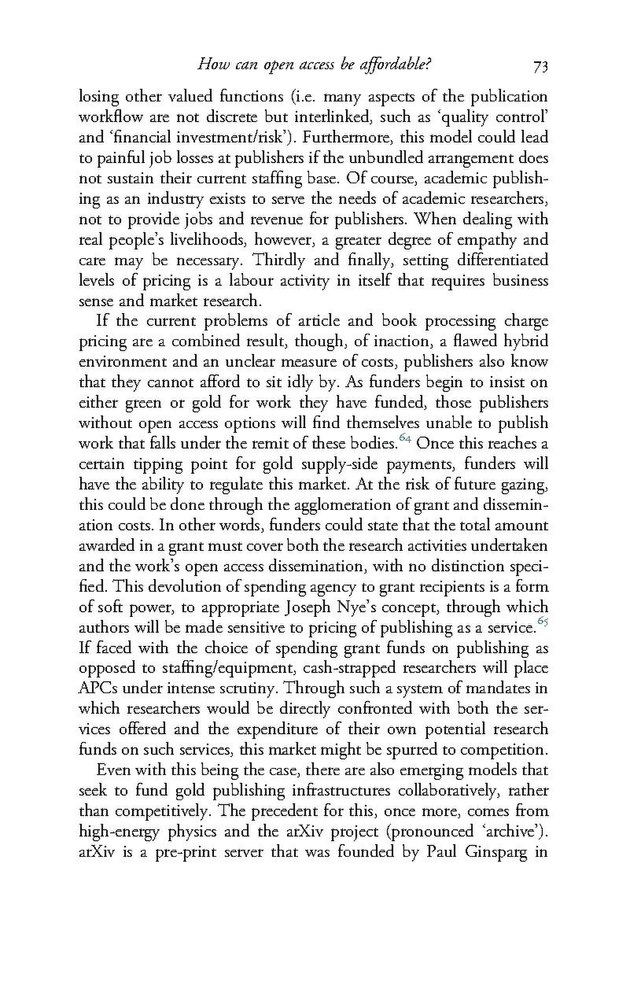losing other valued functions (i.e. many aspects of the publication workflow are not discrete but interlinked, such as ‘quality control’ and ‘financial investment/risk’). Furthermore, this model could lead to painful job losses at publishers if the unbundled arrangement does not sustain their current staffing base. Of course, academic publishing as an industry exists to serve the needs of academic researchers, not to provide jobs and revenue for publishers. When dealing with real people’s livelihoods, however, a greater degree of empathy and care may be necessary. Thirdly and finally, setting differentiated levels of pricing is a labour activity in itself that requires business sense and market research.
If the current problems of article and book processing charge pricing are a combined result, though, of inaction, a flawed hybrid environment and an unclear measure of costs, publishers also know that they cannot afford to sit idly by. As funders begin to insist on either green or gold for work they have funded, those publishers without open access options will find themselves unable to publish work that falls under the remit of these bodies.64 Once this reaches a certain tipping point for gold supply-side payments, funders will have the ability to regulate this market. At the risk of future gazing, this could be done through the agglomeration of grant and dissemination costs. In other words, funders could state that the total amount awarded in a grant must cover both the research activities undertaken and the work’s open access dissemination, with no distinction specified. This devolution of spending agency to grant recipients is a form of soft power, to appropriate Joseph Nye’s concept, through which authors will be made sensitive to pricing of publishing as a service.65 If faced with the choice of spending grant funds on publishing as opposed to staffing/equipment, cash-strapped researchers will place APCs under intense scrutiny. Through such a system of mandates in which researchers would be directly confronted with both the services offered and the expenditure of their own potential research funds on such services, this market might be spurred to competition.
Even with this being the case, there are also emerging models that seek to fund gold publishing infrastructures collaboratively, rather than competitively. The precedent for this, once more, comes from high-energy physics and the arXiv project (pronounced ‘archive’). arXiv is a pre-print server that was founded by Paul Ginsparg in
